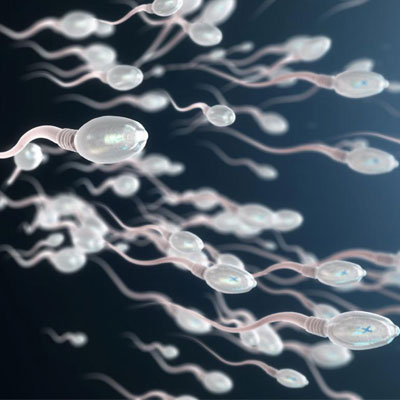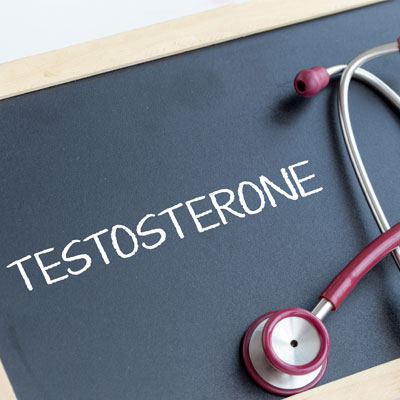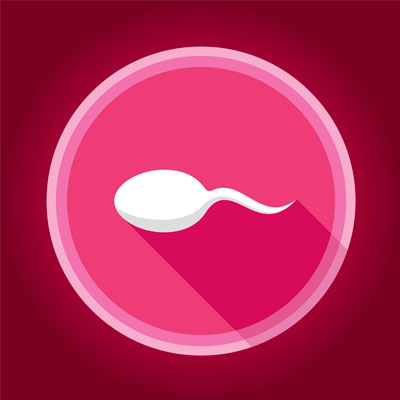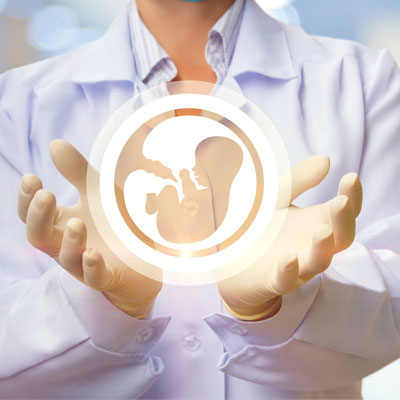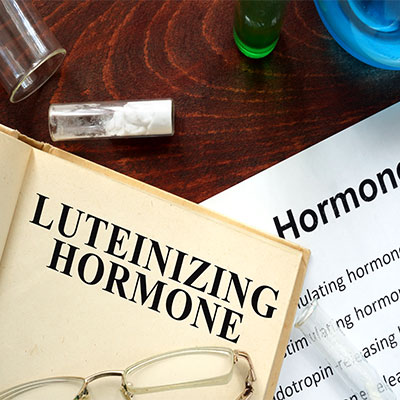The Role of Testosterone in Sperm Production and Fertility
Contents
- What is spermatogenesis?
- What is the spermatogenesis process?
- What irregularities in sperm production can occur?
- Why Is Testosterone Important to a Man’s Sperm Count?
- What Happens to Sperm Production When Testosterone Levels Decline?
- Can Testosterone Therapy Improve Sperm Production?
- Is There a Way to Use Testosterone Therapy and Increase Sperm Production?
Testosterone is the primary male androgen (sex) hormone that is vital for pubertal maturation and sexual development. Although there are many other critical functions of testosterone in the body (metabolism, heart health, brain support), the Trusted sourceUnderstanding spermatogenesisReproductive Biology and EndocrinologyGo to sourceprocess of spermatogenesis is foremost. What is the connection between testosterone and sperm production, and what happens when a man has Low T? Those are the questions we will answer.
What is spermatogenesis?
The process that takes immature germ cells through maturation into sperm cells capable of fertilizing an egg (oocyte) is called spermatogenesis. It encompasses the early development of the spermatozoa all the way through transportation into the seminiferous tubule for further maturation, and then to the epididymis for storage until ready to exit the body.
What is the spermatogenesis process?
Spermatogenesis begins with the spermatogonia (sperm-producing stem cells). It can take up to 2 and a half months to complete the process of spermatogenesis of each sperm cell. During that time, the spermatozoa go through many stages until reaching full maturity.
The seminiferous tubules house the sperm stem cells in their outer walls. These cells begin to multiply in a process called mitosis. Two different types of cells form at this stage – the future spermatozoa and remaining stem cells to create new germ cells in the future.
The spermatogonia that will become mature sperm cells enter the center of the seminiferous tubule where they find the Sertoli cells. As the cytoplasm around the sperm cells increases, the nuclear material in the cell condenses and takes on an oval shape to become the head of the sperm. Following a resting phase, these primary sperm cells divide and become secondary sperm cells. The tail of the sperm (which propels it through the tubules) comes from the cytoplasm of the secondary sperm cell.
The Sertoli cells are a critical factor in the relationship between testosterone and sperm production. It is the Sertoli cells that maintain the necessary environment for sperm cell development. Aside from their many other roles in spermatogenesis, Sertoli cells secrete ABP (androgen-binding protein) which concentrates the testosterone near the developing sperm cells. Testosterone, which is produced by the Leydig cells in the testes, is crucial for sperm maturation. The spermatozoa need large quantities of testosterone to help them develop. Much of the testosterone produced in the testes remain there to facilitate sperm cell maturation. What is left enters the bloodstream to circulate to the body’s various androgen receptor cells.
Upon maturation, the sperm cell transports its way through the seminiferous tubules for storage in the epididymis. Finally, the mature spermatozoa exit the epididymis and enter the vas deferens where it mixes with seminal fluid and becomes a part of the semen that will exit the penis during ejaculation.
What irregularities in sperm production can occur?
Irregularities in sperm production can include both obstructive and nonobstructive issues. Obstructive infertility causes the sperm to be blocked during ejaculation so that it cannot exit the penis. Nonobstructive infertility occurs when there is a problem with the actual spermatozoa production or quality. Trusted sourceAzoospermiaCleveland ClinicGo to sourceAzoospermia is a total absence of sperm that can stem from hormonal imbalance, genetic irregularities, to tubule blockage.
Testosterone is crucial to the process of sperm cell maturation.
Why Is Testosterone Important to a Man’s Sperm Count?
The production process of sperm cells is a multi-step system that requires a variety of hormones and three different types of cells.
The required cells are:
- Germ cells – the immature sperm-producing cells (spermatogonia)
- Leydig cells – testosterone producers
- Sertoli cells – necessary for development and maturation of sperm cells
The hormonal process that ensures proper testosterone levels and sperm production is as follows:
- The hypothalamus measures hormone levels in the bloodstream to determine the amount of testosterone. If the level of testosterone is low, the hypothalamus sends a supply of gonadotropin-releasing hormone (GnRH) to the pituitary gland.
When GnRH enters the pituitary gland, it stimulates the production of:
- Luteinizing hormone (LH) – informs the Leydig cells in the testes to produce testosterone
- Follicle-stimulating hormone (FSH) – promotes the creation of sperm cells
As we explore the connection between testosterone and sperm production, we find the concentration of testosterone significantly higher in the testes than in the blood. While it is FSH that helps stimulate sperm cell production, it is testosterone that helps the spermatozoa mature.
Testosterone is the hormone that helps spermatozoa mature.
What Happens to Sperm Production When Testosterone Levels Decline?
If a man does not have enough testosterone, there is a significant possibility of infertility. The connection between low testosterone and sperm production is a strong one. In addition to their other functions, both the Sertoli cells and the Leydig cells also produce estradiol (estrogen). While estrogen is a vital hormone for aiding in spermatogenesis, too much estrogen can suppress testosterone secretion.
When a man has low levels of testosterone and production of sperm begins to suffer, it can become increasingly difficult to achieve pregnancy with his partner. The sperm count will likely decrease. Another factor is that the mature sperm cells are weaker than they would be if there were ample testosterone to ensure their proper maturation. The weakened state of the sperm cells may make it difficult to penetrate the hard wall of the oocyte to facilitate fertilization.
Maintaining healthy levels of testosterone and sperm production are vital for pregnancy to occur.
Low testosterone often leads to infertility.
Can Testosterone Therapy Improve Sperm Production?
It is natural to assume that testosterone replacement and sperm production go together. After all, increasing testosterone levels in the bloodstream should help with all of testosterone’s functions, right? Wrong!
The connection between testosterone and sperm production only applies to testosterone secreted in the testes. Intratesticular testosterone is required for spermatogenesis. Supplemental testosterone remains in the bloodstream – it never enters the testes. While testosterone produced in the testicles can exit into the bloodstream, no testosterone can enter from the bloodstream.
What does that mean for a man who wants to receive testosterone therapy to combat the symptoms of Low T?
Whether you are talking about testosterone patches, gels, testosterone cypionate injections, or testosterone enanthate and sperm production, the result is the same – possible infertility.
Why would testosterone therapy harm sperm production?
Remember back when we mentioned that the hypothalamus sends the signals to the pituitary gland to release testosterone and sperm cell-producing hormones? The hypothalamus does so because it senses low testosterone levels in the bloodstream. If you supplement with testosterone therapy, you no longer have Low T. As a result, the hypothalamus will not send GnRH to promote hormone release. Testicular testosterone production declines, adversely impacting spermatogenesis.
Testosterone therapy can help with the symptoms of Low T, but it can also hinder sperm production and potentially cause infertility.
Is There a Way to Use Testosterone Therapy and Increase Sperm Production?
There are two distinct options for testosterone replacement therapy and sperm production:
- HCG injections – the use of human chorionic gonadotropin fulfills the same function as LH – stimulating the Leydig cells to produce more testosterone.
- HCG and testosterone together – if your body requires immediate testosterone therapy because your T levels are extremely low, adding HCG at the same time can help preserve testicular testosterone production.
It is vital that you have enough testicular testosterone to support the process of spermatogenesis. Our hormone specialists will be happy to speak with you about your concerns over testosterone and sperm production. Consultations are private, free of charge, and conducted by telephone. Do not wait any longer to call – the situation may only worsen as time passes.
Our hormone specialists are here to help you receive the testosterone therapy you need while improving sperm production. Call today for a free consultation.
- Wei Zhao, Jun Jing, Yong Shao, Rong Zeng, Cencen Wang, Bing Yao, Dong Hang.
- William H Walker, PhD.
- Liza O’Donnell, PhD., Robert I. McLachlan, PhD., Prof.
- Amy Laukka, Mazen Abdallah, MD., The University of Texas Health Science Center at Houston
- Vinayak Madhusoodanan, MD., Premal Patel, MD., Thiago Fernandes Negris Lima, MD., Jabez Gondokusumo, MD., Eric Lo, Nannan Thirumavalavan, MD., Larry I. Lipshultz, MD., Ranjith Ramasamy, MD.
- Bobby Najari, MD.
Circulating sex hormone levels in relation to male sperm quality
Testosterone signaling and the regulation of spermatogenesis
The role of testosterone in spermatogenesis
7 things a Houston fertility expert wants you to know
Human Chorionic Gonadotropin monotherapy for the treatment of hypogonadal symptoms in men with total testosterone > 300 ng/dL
Azoospermia With Testosterone Therapy Despite Concomitant Intramuscular Human Chorionic Gonadotropin

